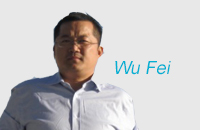Countries show low ambition at Rio+20
By Patrick Schroeder (chinadaily.com.cn) Updated: 2012-06-27 14:00Therefore, more than 2,000 organisations from around the world signed a petition called "The Future We Don't Want" which expresses discontent with the agreement adopted by governments. The reason is that it does not in reflect the aspirations of many civil society delegates at the Rio summit. Brittany Trilford, a seventeen year old child from New Zealand, was chosen to deliver a speech to the high level panel, representing the future generations. Her speech concluded with the remarks “Are you here to save face? Or are you here to save us?” which summarized the widespread sense of disappointment among many participants.
Action in a post-Rio world.
In Rio China made commitments to support other developing countries through capacity building and training professionals for ecological preservation. China also vowed to cancel 30 billion yuan in debt owed by heavily indebted developing countries. These are very laudable initiatives which will enhance south-south cooperation for sustainable development. Many developing countries will be able to learn from China’s experiences in sustainable development.
The weak outcome of the Rio summit demonstrates the need for more innovative bottom-up initiatives as the multilateral process is very limited in what it can deliver. To realise the desirable future we want and the future we really need, bottom-up actions both from the private sector, local governments and civil society are necessary. To fill the gap between the commitments made by governments and what the planet's future generations require, local governments need to facilitate sustainable urbanization processes and businesses need to provide innovative technologies. The role of civil society is to engage the public, provide visions and solutions of possible sustainable futures and hold governments and companies accountable for the commitments that were made in Rio.
In Rio a large number of Chinese civil society organizations working on sustainable development were present. Under the slogan of "China Going Green" they organized a series of events introducing Chinese civil society initiatives. A report was launched which assessed the state of China's sustainable development. The report identified both the good practices adopted in China for sustainable development as well as a number of areas that require further efforts. Mr Sha Zukang, head of the UN's Commission on Sustainable Development, attended a Chinese civil society event and emphasized the need for public participation in China as necessary to achieve sustainable development.
In Rio 1992 at the first Earth Summit no Chinese civil society representatives were present. In 2002 at the Johannesburg Summit, some civil society delegates participated, but mainly to observe and learn about multilateral processes. In 2012, Chinese civil society went to Rio to show to the world what is happening in terms of sustainable development initiatives implemented by civil society in China.
More ambition is needed to implement concrete solutions for sustainable development and a desirable new world. This goes beyond technical solutions of the Green Economy and will also require increased public participation. Despite the weak outcome, Rio still marks a shift in the way the world understands sustainable development and the way it will govern itself. Most of the work is still ahead.
The author is an international adviser for China Association for NGO Cooperation and China Civil Climate Action Network.











